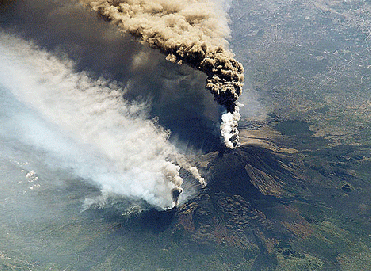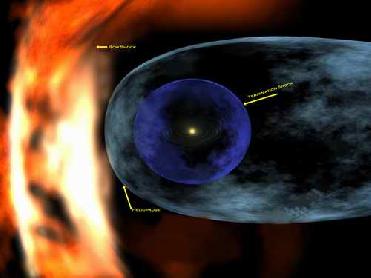
WASHINGTON (BNS): Volcanic eruptions and lightning, of all things, might have provided sparks for life on Earth, according to a new analysis of samples from the classic origin of Life experiment by NASA and university researchers.
The NASA-funded result is the subject of a paper in Science that appeared on October 16.
“Historically, you don’t get many experiments that might be more famous than these; they redefined our thoughts on the origin of life and showed unequivocally that the fundamental building blocks of life could be derived from natural processes,” said lead author Adam Johnson, an Indiana University graduate student with the NASA Astrobiology Institute team.
Co-author Jeffrey Bada at Scripps Institution of Oceanography at UC San Diego, talks about the reanalysis of Stanley Millers classic origin of life experiment. The paper, The Miller Volcanic Spark Experiment, offers analysis on how the essential building blocks of life may have arisen from volcanic eruptions.
“We found that a modern day version of the volcanic apparatus produces a wider variety of compounds,” Bada said.
Bada said that he believed that there was more to be learned from Millers original experiment. His lab was the first to perform follow up studies using Millers original apparatus and chemicals samples, which were discovered following Millers death in 2007.
Researchers reanalysed 11 of the original samples using contemporary analytical chemistry techniques and produced 22 amino acids, the building blocks of proteins, 10 of which had not been identified previously by Miller.
Miller’s classic Primordial Soup Theory, published in Science in 1953, is still widely used in high school chemistry labs to mimic chemical reactions that occur in vapor-rich volcanic eruptions.
The experiment circulated methane, ammonia, water vapor and hydrogen in a closed experiment, simulating the Earth’s early atmosphere and sent a lightning-like spark through it. Over a series of days, organic compounds formed in the mixture, demonstrating how Earth’s primitive atmosphere may have given rise to life.
There is a common belief that early Earth comprised of many small volcanic islands.
However, the current research suggests that lightning and release of gases associated with these volcanic eruptions could have produced the necessary chemical components to give rise to early life.
 Previous Article
Previous Article













The Indian Air Force, in its flight trials evaluation report submitted before the Defence Ministry l..
view articleAn insight into the Medium Multi-Role Combat Aircraft competition...
view articleSky enthusiasts can now spot the International Space Station (ISS) commanded by Indian-American astr..
view article